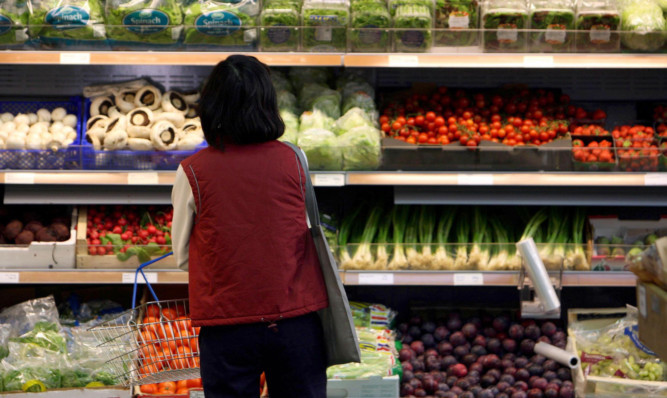The competition watchdog is set to respond to a super-complaint by Which? that accused supermarkets of ripping off consumers with misleading and confusing prices.
Which? lodged the complaint with the Competition and Markets Authority (CMA) in April, claiming retailers were creating the illusion of savings through the use of multi-buys, shrinking products and baffling sales offers.
Which? said 40% of groceries were sold on promotion so consumers could be collectively losing out to the tune of hundreds of millions of pounds if only a small proportion of offers were misleading.
It added that it was virtually impossible for people to know if they were getting a fair deal, particularly when prices varied frequently or when consumers were in a rush and might be buying numerous items of relatively low value.
The group is one of a handful of bodies with the power to make a super-complaint on behalf of consumers about poorly functioning markets to the CMA.
Promotions have become more widely used in the industry over the last 12 months as major supermarkets have cut prices to fight losses in market share to discounters such as Aldi and Lidl.
The consumer body said that over the last seven years it had catalogued a range of misleading pricing practices and had passed a report of its findings to the CMA.
This is only the sixth time Which? has used its super-complaint power since it was granted the right in 2002.
It last issued a super-complaint in 2011 when it asked the Office of Fair Trading (OFT) to investigate excessive credit and debit card surcharges.
The OFT upheld its complaint.
The CMA found that the problems raised by the investigation were “notoccurring in large numbers across the whole sector” and that retailers weretaking compliance seriously.
It also said more could be done to reduce the complexity in the way individual items were priced.
The CMA said it would work with businesses to cut out potentially misleading promotional practices such as “was/now” offers where a product is on sale at a discounted price for longer than the higher price applied.
In addition it has called for new guidelines to be issued to supermarkets and has published its own “at a glance” guidance to help consumers.
The probe gathered information from retailers, manufacturers, consumers and advice bodies, as well as commissioning data and surveys on pricing practices in the industry, which was worth between £148 billion and £178 billion in 2014.
A so-called “super-complaint” by Which? in April had raised concerns focusing on key issues of potentially misleading special offers, individual unit pricing, price-matching schemes and changing pack sizes.
Which? executive director Richard Lloyd said: “The CMA’s report confirms whatour research over many years has repeatedly highlighted: there are hundreds ofmisleading offers on the shelves every day that do not comply with the rules.
“This puts supermarkets on notice to clean up their pricing practices or face legal action.
“Given the findings, we now expect to see urgent enforcement action from the CMA. The Government must also quickly strengthen the rules so that retailers have no more excuses.
“As a result of our super-complaint, if all the changes are implemented widely, this will be good for consumers, competition and, ultimately, the economy.”
Which? said it had found evidence of misleading and confusing promotional practices including a two-litre bottle of Pepsi Max advertised at £1.98 for 28 days but then on a £1 “was £1.98” offer for 63 days.
It also said “unit pricing” allowing comparisons between products needed to be made more legible.
For example, some sauces in supermarkets were priced per 100ml and others per 100g, making it impossible to make a price comparison.
